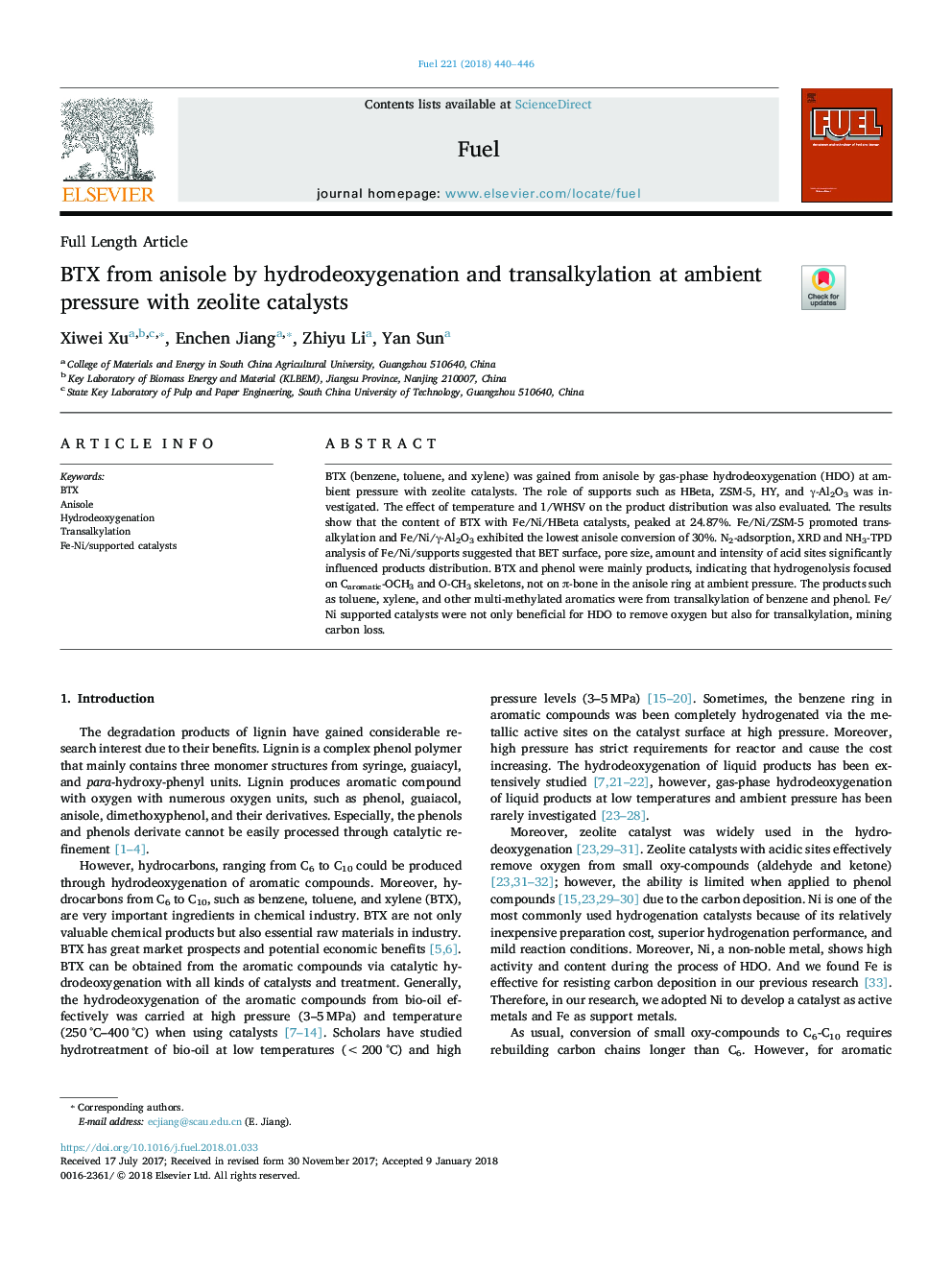| Article ID | Journal | Published Year | Pages | File Type |
|---|---|---|---|---|
| 6631573 | Fuel | 2018 | 7 Pages |
Abstract
BTX (benzene, toluene, and xylene) was gained from anisole by gas-phase hydrodeoxygenation (HDO) at ambient pressure with zeolite catalysts. The role of supports such as HBeta, ZSM-5, HY, and γ-Al2O3 was investigated. The effect of temperature and 1/WHSV on the product distribution was also evaluated. The results show that the content of BTX with Fe/Ni/HBeta catalysts, peaked at 24.87%. Fe/Ni/ZSM-5 promoted transalkylation and Fe/Ni/γ-Al2O3 exhibited the lowest anisole conversion of 30%. N2-adsorption, XRD and NH3-TPD analysis of Fe/Ni/supports suggested that BET surface, pore size, amount and intensity of acid sites significantly influenced products distribution. BTX and phenol were mainly products, indicating that hydrogenolysis focused on Caromatic-OCH3 and O-CH3 skeletons, not on Ï-bone in the anisole ring at ambient pressure. The products such as toluene, xylene, and other multi-methylated aromatics were from transalkylation of benzene and phenol. Fe/Ni supported catalysts were not only beneficial for HDO to remove oxygen but also for transalkylation, mining carbon loss.
Related Topics
Physical Sciences and Engineering
Chemical Engineering
Chemical Engineering (General)
Authors
Xiwei Xu, Enchen Jiang, Zhiyu Li, Yan Sun,
